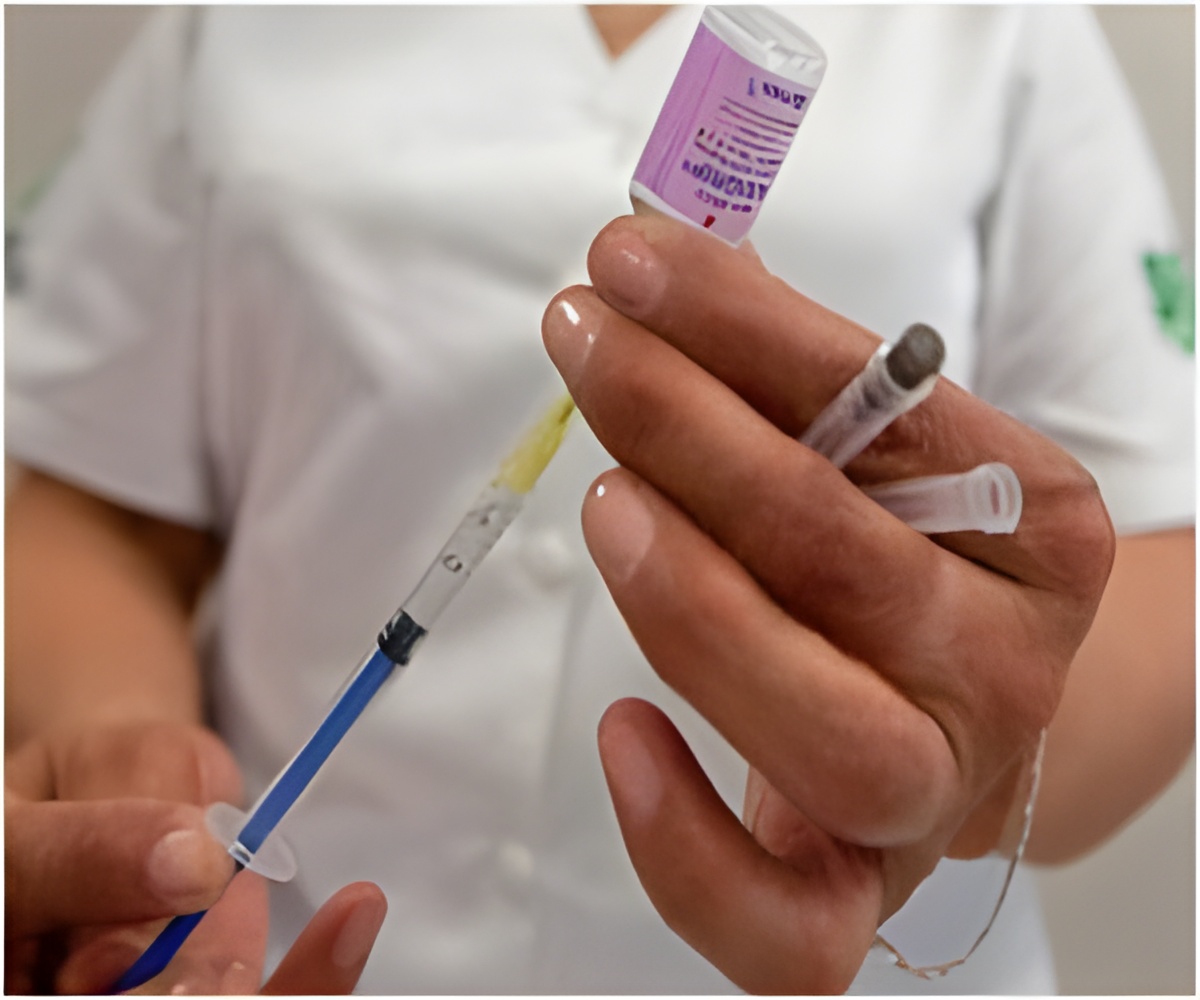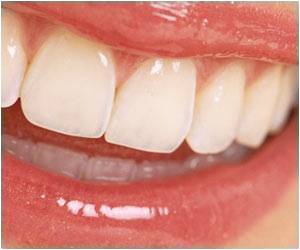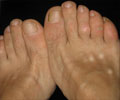Foam injections to treat varicose veins cause less pain for patients and could save NHS money compared

Patients requiring treatment often undergo surgery to strip out the affected vein. Under general anaesthetic, the vein is tied off through a cut in the groin and pulled out by a wire passed through a cut lower in the leg. 36,209 varicose vein procedures are carried out in the NHS each year.
In the last decade, new non-surgical treatments have been introduced that cause less scarring and do not require general anaesthetic. Endovenous Laser Ablation (EVLA) involves a laser wire, inserted into the vein through a catheter, which delivers short bursts of energy that seal the vein closed. It is usually carried out under local anaesthetic. Foam sclerotherapy involves injecting foam into the vein that inflames the lining of the wall and seals the vessel.
The new study compared these two treatments in terms of benefit to the patient and cost. One hundred patients were randomly assigned to laser or foam treatment. The two treatments were found to be equally successful at closing off varicose veins. However, foam therapy procedures were more than twice as quick and cost over four times less than laser treatment on average. Patients who had foam therapy experienced less pain in the week following treatment and could return to normal activity in three days, compared with eight days for patients who had laser therapy.
Mr Christopher Lattimer, from the Department of Surgery and Cancer at Imperial College London, said: "This is the first time that anyone in the NHS has compared foam and laser treatments to see which is better value for money. We found that foam was 4.2 times cheaper, taking into account their effectiveness. Foam treatment was also quicker, less painful, and had people back to normal activity in a shorter time."
Mr George Geroulakos, from the Department of Surgery and Cancer at Imperial College London, said: "Because varicose veins are so common, the NHS has to spend a lot of money on treatments each year. If more people are treated with foam injections instead of surgery or laser treatment, the potential savings could be enormous. This sort of research is hugely important at a time when budgets are under such strain."
Advertisement
Closing the veins that run near the skin does not impair circulation as blood can still return to the heart through the larger veins inside the leg.
Advertisement
Source-Eurekalert












